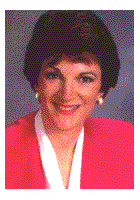|
|

|
Mona Charen
Reagan reduced poverty more than Clinton

THAT ORGAN of distilled good sense, the American Enterprise magazine, reminds us yet  again of the striking double standard that applies to Democratic vs. Republican
presidents.
again of the striking double standard that applies to Democratic vs. Republican
presidents.
When Ronald Reagan was president, stories about the sufferings of the unemployed and the "growing" gap between rich and poor were staples of news coverage. Typical New York Times headlines during that period read, "Income of Families is Up, with Richest Benefiting Most" (Feb. 25, 1988) and "Forces in Society and Reaganism Helped Dig Deeper Hole for Poor" (July 16, 1989). It was taken for granted that while Reagan's policies had certainly helped the rich -- Donald Trump became a household name in the '80s -- the rest of the country had been made to foot the bill.
The '80s were a decade of prosperity, but the press despised the country's success, labeling it the Decade of Greed. It was true that among some elites, conspicuous consumption was the order of the day -- no one caricatured this better than conservative novelist and critic Tom Wolfe. But the '80s were also a decade of generosity, with charitable contributions growing at a rate of 5.1 percent a year, compared to a rate of 3.5 percent a year over the previous quarter century.
We are now in the midst of another decade of prosperity -- and, in some quarters, extravagance. Yet, the press has neither resented the success of the wealthy nor condemned the plight of the poor.
It is therefore interesting to compare, as the American Enterprise has, the growth of the gap between rich and poor in the '80s vs. the '90s:
Looking at the ratio of the 80th percentile earner to the 20th percentile earner, Census Bureau data show that in 1980, the wealthiest were earning 4.2 to 1 as much as the poorest. In 1989, the figure was 4.6 to 1. Under Clinton, the gap between rich and poor has grown more rapidly than it did under Reagan. As for the national poverty rate, in 1980 it was 13 percent, in 1996 it was 12.8 percent, and in 1996 it was 13.7 percent.
While the press and Democrats claimed that Reagan's policies benefited only the rich, in truth, all income groups, including the poor, made gains during the 1980s. Between 1981 and 1989, the bottom 20 percent realized a 6 percent income gain, those in the middle earned between 9 percent and 14 percent more, and the top 20 percent gained about 24 percent.
While the wealthy saw the greatest increase in their incomes during the 1980s, they also shouldered more of the tax burden at the end of the decade than at the beginning. According to the Tax Foundation, in 1981, the top 10 percent of taxpayers paid 48 percent of the taxes. In 1990, the top 10 percent were paying 54 percent of the taxes.
It is a mistake, of course, to attribute these income distributions to the policies of presidents alone. In fact, the policies of Ronald Reagan and Bill Clinton were probably much less important to the income figures than other factors, such as family structure, the growth of demand for highly skilled workers and the phenomenon of the two-earner couple. But it is interesting that the press was so convinced -- and convinced so many others -- that Reagan was benefiting only the rich, when the data suggest that Bill Clinton has much more to answer for on that score than Reagan did.
Finally, it is worth noting that Reagan accomplished his economic magic while cutting
everyone's taxes -- and Clinton has raised taxes to their highest point ever. In 1997,
federal, state and local taxes reached a high of 21.4 percent of GDP. For the past 50
years, taxes have averaged 18.5 percent of GDP. The median family now pays more in
taxes than for housing, food, clothing and medical care combined. Many of these taxes
are hidden as employer taxes, sales taxes and business levies, but if people knew the
truth, it is doubtful they would have accepted Clinton's State of the Union claim that we
now have the "smallest government in 35
2/20/98: Rally Round the United Nations?
2/17/98: In Denial
2/13/98: Reconsidering Theism
2/10/98: Waiting for the facts?
2/8/98: Cat got the GOP's tongue?
2/2/98: Does America care about immorality?
1/30/98: How to judge Clinton's denials
1/27/98: What If It's Just the Sex?
1/23/98: Bill Clinton, Acting Guilty
1/20/98: Arafat and the Holocaust Museum
1/16/98: Child Care or Feminist Agenda?
1/13/98: What We Really Think of Abortion
1/9/98: The Dead Era of Budget Deficits Rises Again?
1/6/98: "Understandable" Murder and Child Custody
1/2/98: Majoring in Sex
12/30/97: The Spirit of Kwanzaa
12/26/97: Food fights (Games children play)
12/23/97: Does Clinton's race panel listen to facts?
12/19/97: Welcome to the Judgeocracy, where the law school elite overrules majority rule
12/16/97: Do America's Jews support Netanyahu?